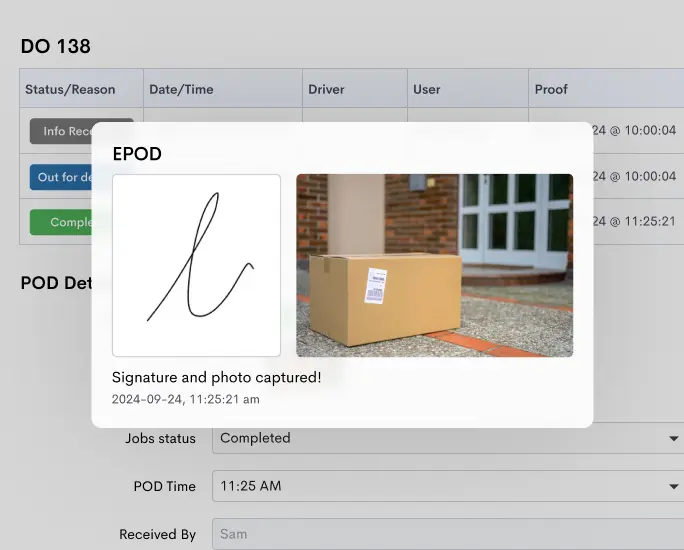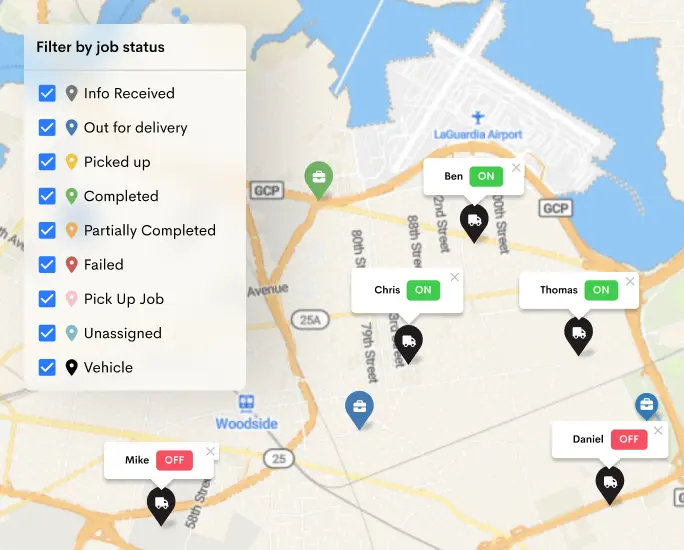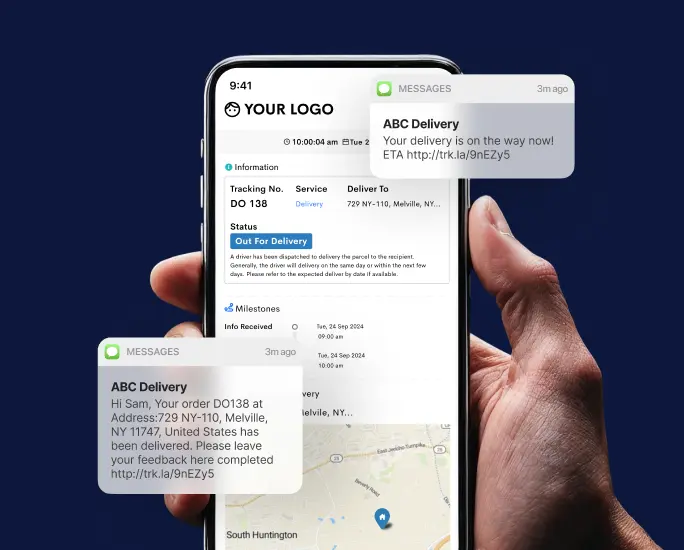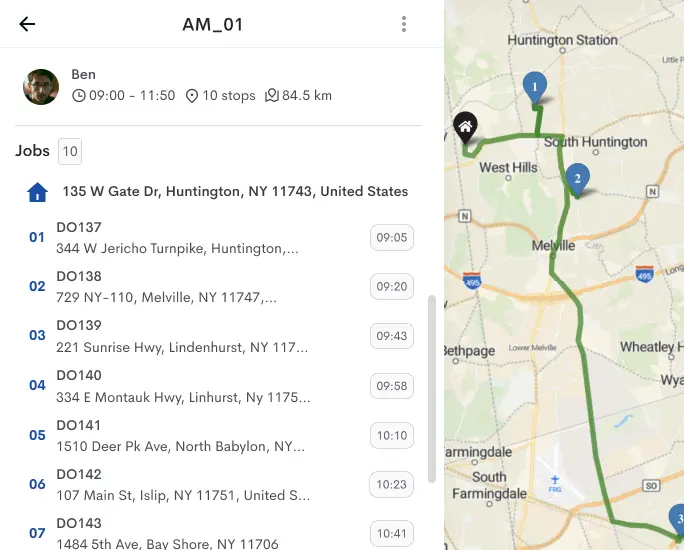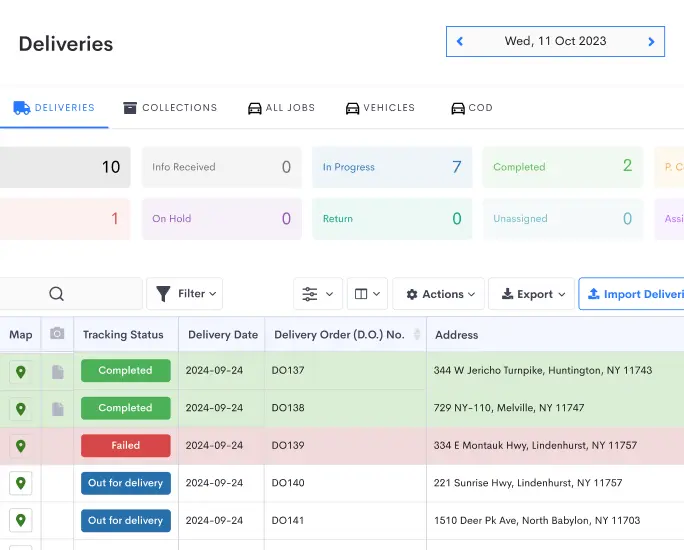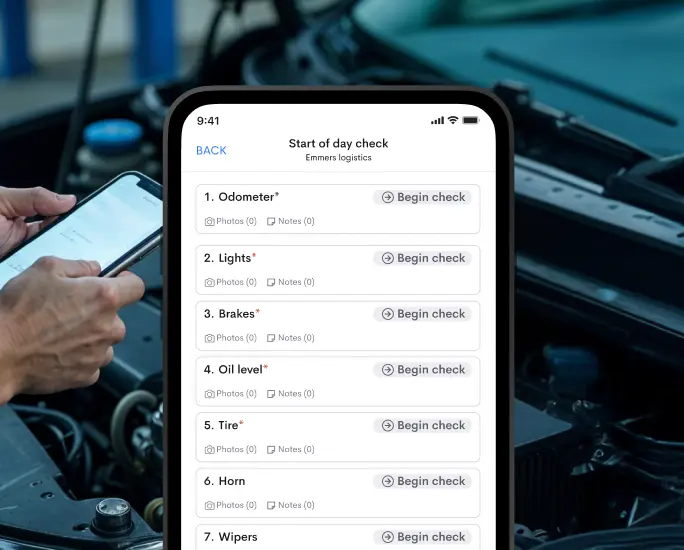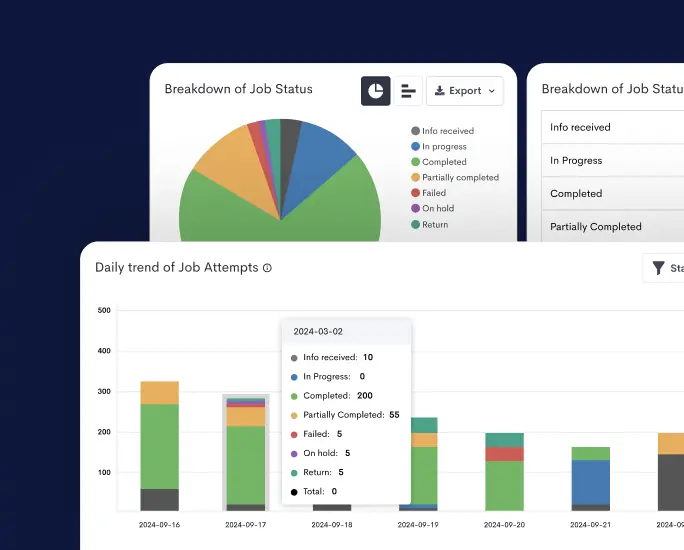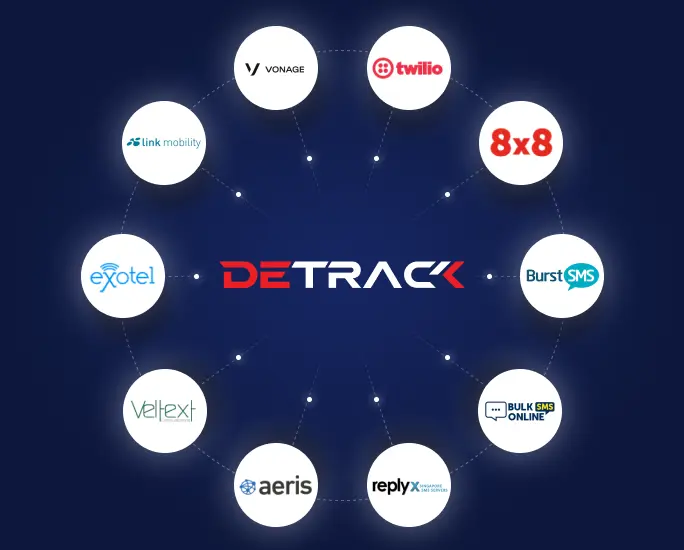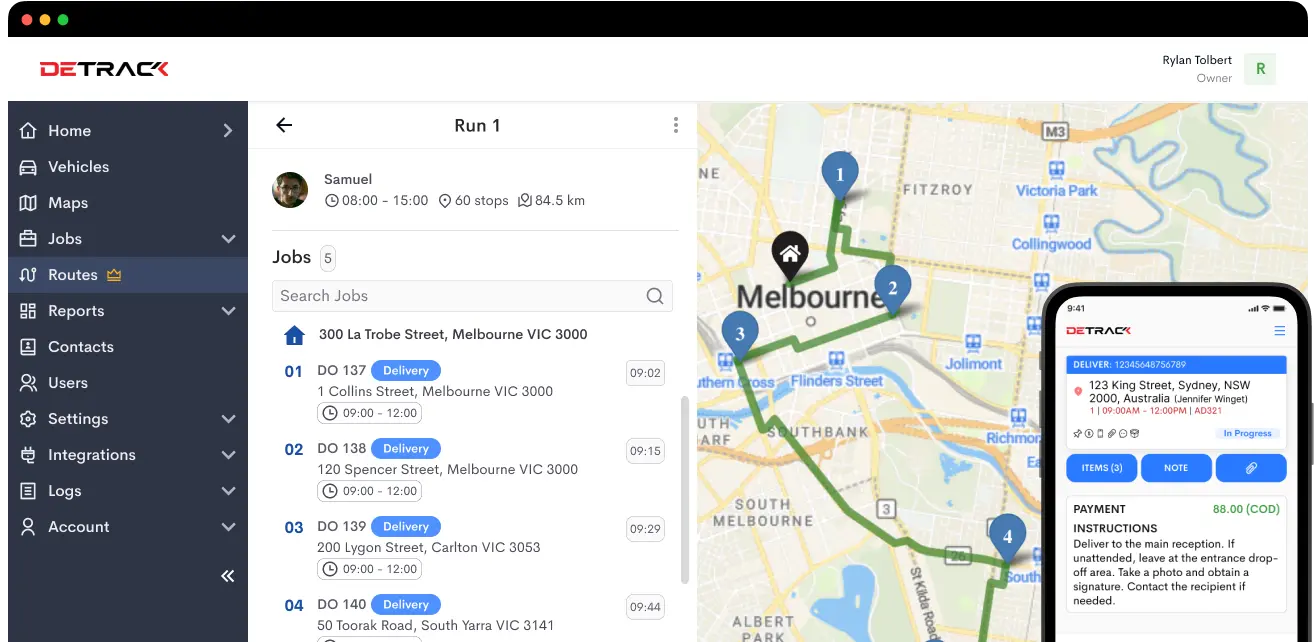Fleet management is critical to many businesses, particularly those that rely on transportation. Whether it’s a delivery service, logistics company, or even a construction firm, efficiently managing a fleet of vehicles is essential for success.
But what exactly does fleet management entail, and why is it so important?
| Oversee Your Fleet in Just One Device Detrack allows you to efficiently manage and monitor your entire fleet using one device, ensuring streamlined operations and real-time tracking. Try Detrack Today! |
What is Fleet Management?
Fleet management involves overseeing and coordinating a company’s vehicle operation, maintenance, and utilization.
This includes cars, trucks, vans, buses, and specialized vehicles used for various purposes such as transportation, delivery, and service provision.
The primary goal of fleet management is to optimize the use of these vehicles, reduce costs, ensure compliance with regulations, and enhance overall efficiency.

Key Components of Fleet Management:
- Vehicle Acquisition and Disposal: Fleet managers are responsible for acquiring new vehicles that meet the organization’s needs while considering cost, fuel efficiency, and reliability. They also oversee the disposal of old vehicles through sales or auctions to maintain a modern and efficient fleet.
- Maintenance and Repairs: Regular maintenance is crucial to keep vehicles in optimal condition and prevent breakdowns. Fleet managers schedule routine servicing, inspections, and repairs to minimize downtime and prolong the lifespan of vehicles. They may also implement preventive maintenance programs to address potential issues before they escalate.
- Driver Management: Another essential aspect of fleet management is managing drivers. This involves recruiting, training, and monitoring drivers to ensure they adhere to safety regulations, follow company policies, and operate vehicles responsibly. To promote safe driving habits, fleet managers may use telematics systems to track driver behavior, such as speeding, harsh braking, and idling.
- Fuel Management: Fuel expenses constitute a significant portion of fleet operating costs. Effective fuel management involves monitoring fuel consumption, identifying inefficiencies, and implementing strategies to reduce fuel expenses, such as route optimization, vehicle maintenance, and driver training. Some companies also use fuel cards and monitoring systems to track fuel usage and expenses accurately.
- Route Planning and Optimization: Optimizing routes is essential for maximizing efficiency and reducing fuel consumption and vehicle wear and tear. Fleet managers use route planning software and GPS technology to create the most efficient routes based on traffic conditions, distance, and delivery schedules.
Benefits of Fleet Management
- Cost Savings: Effective fleet management helps companies reduce operating costs by optimizing vehicle utilization, minimizing fuel consumption, and preventing unnecessary maintenance and repairs.
- Improved Efficiency: Streamlining operations, optimizing routes, and enhancing vehicle maintenance contribute to increased efficiency and productivity, allowing companies to fulfill customer demands promptly and effectively.
- Enhanced Safety: Fleet management helps reduce accidents, injuries, and liabilities by monitoring driver behavior and implementing safety protocols, promoting a safer work environment for drivers and employees.
- Regulatory Compliance: Compliance with regulations governing vehicle safety, emissions, and driver hours is essential for avoiding fines, penalties, and legal issues. Fleet management ensures that companies meet regulatory requirements and maintain proper documentation.

Challenges of Fleet Management:
While fleet management offers numerous benefits, it also presents several challenges that organizations must address:
- Technology Integration: Implementing fleet management software and telematics systems requires investment and training to ensure seamless integration with existing processes and workflows.
- Data Security: Collecting and storing sensitive data, such as vehicle locations and driver information, raises concerns about data security and privacy. Companies must implement robust security measures to protect against unauthorized access and data breaches.
- Driver Resistance: Some drivers may resist fleet management initiatives, viewing them as intrusive or restrictive. Effective communication and training are essential to gain driver buy-in and cooperation.
- Maintenance Costs: While preventive maintenance helps reduce repair expenses, it also incurs upfront costs for servicing and inspections. Balancing maintenance budgets while ensuring vehicle reliability is a constant challenge for fleet managers.
Best Practices for Fleet Management:
- Invest in Technology: Embrace fleet management software, telematics systems, and GPS tracking devices to monitor vehicles, optimize routes, and improve operational efficiency.
- Prioritize Safety: Implement driver training programs, safety incentives, and regular vehicle inspections to promote safe driving practices and reduce accidents.
- Optimize Maintenance: Develop preventive maintenance schedules, track vehicle performance metrics, and partner with reliable service providers to minimize downtime and repair costs.
- Monitor Performance: Use key performance indicators (KPIs) to assess fleet performance, identify areas for improvement, and make data-driven decisions to enhance efficiency and profitability.
Conclusion
Effective fleet management is more critical than ever for companies relying on transportation to deliver goods and services.
By adopting best practices, leveraging technology, and prioritizing safety and efficiency, organizations can streamline operations, reduce costs, and gain a competitive edge in the market.
Fleet management isn’t just about managing vehicles—it’s about optimizing resources, maximizing efficiency, and driving business success.

